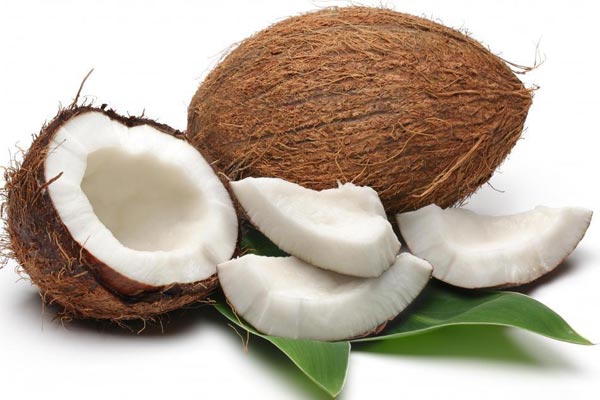Can Dogs Eat Balsamic Vinegar? Vital Guidelines for Pet Owners
As a pet owner, you may wonder if sharing certain foods with your furry companion is safe. Balsamic vinegar, a popular condiment known for its rich flavor, is one such food that may catch your attention. But can dogs eat balsamic vinegar?
While balsamic vinegar itself is not toxic to dogs, there are essential guidelines that pet owners should be aware of before introducing it into their dog’s diet.
This article will explore the safety of balsamic vinegar for dogs, its potential health effects, and provide essential guidelines for feeding it to your beloved canine companion.
Is Balsamic Vinegar Safe for Dogs?
Balsamic vinegar is generally safe for dogs in small amounts. However, it is essential to note that some dogs may have sensitivities or allergies to certain ingredients in balsamic vinegar.
While it may not be toxic to dogs, feeding dogs large amounts of balsamic vinegar can lead to digestive issues and potential toxicity due to its acidic nature.
Pet owners must know the risks involved when considering whether dogs can have balsamic vinegar. Some common risks of feeding dogs balsamic vinegar include stomach upset, diarrhea, and potential damage to the esophagus due to its acidity. It is always best to consult a veterinarian before introducing balsamic vinegar or any new food to a dog’s diet.
To minimize the risks associated with feeding balsamic vinegar to dogs, it is recommended to follow specific guidelines. Firstly, only offer a small amount of balsamic vinegar as an occasional treat or flavor enhancer.
Choosing high-quality, organic balsamic vinegar without any added sugars or artificial ingredients is essential. Diluting the vinegar with water before offering it to a dog can also help reduce the risk of digestive upset.
Risks of Feeding Dogs Balsamic Vinegar
Feeding dogs balsamic vinegar can pose several risks, including:
- Stomach upset and diarrhea: The acidic nature of balsamic vinegar can irritate a dog’s stomach, leading to digestive discomfort and loose stools.
- Potential esophageal damage: The high acidity of balsamic vinegar can cause damage to the esophagus if a dog regurgitates or vomits shortly after consuming it.
- Allergic reactions: Some dogs may have sensitivities or allergies to the ingredients found in balsamic vinegar, such as grapes or sulfites, which can lead to allergic reactions.
- Weight gain: Balsamic vinegar is high in calories and should only be fed to dogs in small amounts to prevent weight gain and obesity.
| Risks of Feeding Dogs Balsamic Vinegar | Guidelines for Feeding Balsamic Vinegar to Dogs |
|---|---|
| Stomach upset and diarrhea | Offer a small amount as an occasional treat or flavor enhancer |
| Potential esophageal damage | Choose high-quality, organic balsamic vinegar without added sugars or artificial ingredients |
| Allergic reactions | Dilute the vinegar with water before offering it to a dog |
| Weight gain | Monitor your dog’s reaction and consult with a veterinarian |
Health Effects of Balsamic Vinegar on Dogs
While balsamic vinegar may have some antioxidant properties, its health effects on dogs are not well-researched. Feeding dogs large amounts of balsamic vinegar can disrupt their digestive system and cause gastrointestinal upset.
The acidic nature of balsamic vinegar can lead to digestive issues in dogs. The vinegar can cause stomach upset, vomiting, and diarrhea if consumed excessively.
Dogs with sensitivities or allergies to certain ingredients in balsamic vinegar may experience adverse reactions. Pet owners must monitor their dogs for any discomfort or illness after consuming balsamic vinegar.
To ensure your dog’s well-being, offering balsamic vinegar in small amounts is recommended as an occasional treat or flavor enhancer. High-quality, organic balsamic vinegar without added sugars or artificial ingredients is the best choice.
Diluting the vinegar with water can help minimize the risk of digestive upset. As with any dietary changes, it is always advisable to consult with your veterinarian before introducing balsamic vinegar or any other new food to your dog’s diet.
Table: Potential Adverse Effects of Balsamic Vinegar on Dogs
| Adverse Effects | Description |
|---|---|
| Digestive Upset | Consuming large amounts of balsamic vinegar can disrupt canine digestion, leading to stomach upset, vomiting, and diarrhea. |
| Allergic Reactions | Some dogs may have sensitivities or allergies to certain ingredients in balsamic vinegar, resulting in adverse reactions such as itching, swelling, or difficulty breathing. |
| Nutritional Deficiency | Balsamic vinegar has minimal nutritional value for dogs and should not be relied upon as a source of essential nutrients. It should be offered in moderation, if at all. |
Guidelines for Feeding Balsamic Vinegar to Dogs
If you choose to incorporate balsamic vinegar into your dog’s diet, it is essential to do so responsibly and in moderation. Here are some guidelines to follow when feeding balsamic vinegar to your canine companion:
1. Offer only a small amount
When introducing balsamic vinegar to your dog, start with a minimal amount. This will allow you to monitor their reaction and ensure they tolerate it well. Remember, moderation is key.
2. Use high-quality, organic balsamic vinegar
Opt for high-quality, organic balsamic vinegar without added sugars or artificial ingredients. This will help minimize the risk of any negative effects on your dog’s health. Always read the label and choose a vinegar made from natural ingredients.
3. Dilute it with water
To reduce the acidity of the vinegar and minimize the risk of digestive upset, dilute the balsamic vinegar with water before offering it to your dog. This will make it easier for their system to digest and absorb.
4. Monitor for any adverse reactions
Keep a close eye on your dog after feeding them balsamic vinegar. Look out for signs of gastrointestinal upset, such as vomiting or diarrhea. If you notice any unusual symptoms, discontinue providing balsamic vinegar and consult your veterinarian.
Alternative Vinegar Options for Dogs
While balsamic vinegar may not be the best choice for dogs, alternative vinegar options may be safer and offer potential health benefits. One popular alternative is apple cider vinegar.
Apple cider vinegar is often touted for its various health properties, including its potential to support digestion, promote a healthy coat, and repel fleas.
However, it is essential to note that not all dogs may tolerate apple cider vinegar well. Hence, it’s crucial to consult with your veterinarian before incorporating it into your pet’s diet.
In addition to apple cider vinegar, other dog vinegar options include white vinegar and rice vinegar. White vinegar can be used as a natural cleaning agent for your dog’s belongings and living spaces, while rice vinegar may add a mild, tangy flavor to your dog’s meals.
As with any new addition to your dog’s diet, it’s essential to introduce this alternative vinegar gradually and in small amounts to monitor for any adverse reactions.
When considering alternative vinegar options, always opt for high-quality, organic varieties without added sugars or artificial ingredients.
Additionally, remember that vinegar should only be given to dogs in moderation and as an occasional addition to their regular diet. It’s always best to consult your veterinarian for personalized advice and guidance on the ideal vinegar options for your furry friend.
Table: Comparison of Vinegar Options for Dogs
| Vinegar Type | Main Benefits | Potential Concerns |
|---|---|---|
| Apple Cider Vinegar | Promotes digestion, supports a healthy coat, may repel fleas | May not be well-tolerated by all dogs; the acidic nature |
| White Vinegar | Natural cleaning agents can be used for odor control | Strong smell, potential irritation if applied topically |
| Rice Vinegar | It has a mild, tangy flavor and adds variety to meals | It may not have significant health benefits, but high sodium content in some varieties |
Conclusion
In conclusion, while balsamic vinegar may not be the most suitable option for dogs, alternative vinegar choices may prove safer.
Before introducing new foods or supplements to your dog’s diet, it is always best to consult a veterinarian who can provide personalized guidance based on your dog’s specific needs and health conditions.
Your furry friend’s well-being is paramount, and responsible feeding practices will help ensure a happy and healthy companion.
FAQ
Can dogs eat balsamic vinegar?
Balsamic vinegar is not toxic to dogs, but knowing the potential risks and guidelines for feeding it to your furry friends is essential.
Is balsamic vinegar safe for dogs?
Balsamic vinegar is generally safe for dogs in small amounts, but some dogs may have sensitivities or allergies to certain ingredients in balsamic vinegar.
What are the health effects of balsamic vinegar on dogs?
Balsamic vinegar has minimal nutritional benefits for dogs and should not be relied upon as a source of essential nutrients. Consuming large amounts of balsamic vinegar can disrupt canine digestion and cause gastrointestinal upset.
What are the guidelines for feeding balsamic vinegar to dogs?
It is recommended to only offer a small amount of balsamic vinegar as an occasional treat or flavor enhancer. Use high-quality, organic balsamic vinegar without added sugars or artificial ingredients and dilute it with water to minimize the risk of digestive upset.
Are there alternative vinegar options for dogs?
Yes, apple cider vinegar is often considered a safer option and may have potential health benefits for humans and dogs. However, always consult your veterinarian before introducing new foods or supplements to your dog’s diet.
What is the conclusion on dogs eating balsamic vinegar?
While balsamic vinegar is not toxic to dogs, feeding them large amounts is generally not recommended due to potential risks and minimal nutritional benefits. Consult with your veterinarian for any dietary concerns regarding your furry friend.






